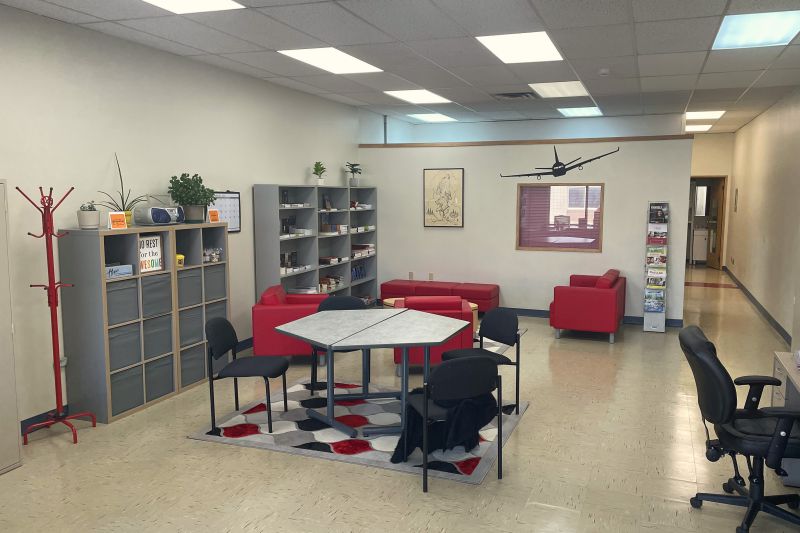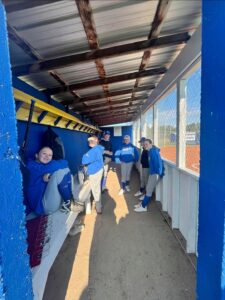Part of Whitecourt Town Council’s Strategic Plan involves investigating higher education
opportunities for locals, allowing graduates and those seeking career changes or upgrades to
have post-secondary options without leaving the community. In the fall, several meetings took
place between the Town and post-secondary operators to establish the challenges and barriers
that have kept them from having a physical location in Whitecourt.
On Tuesday, May 21, Whitecourt’s Economic Development Officer, Rhonda Woods, updated the
Policies and Priorities Committee (comprised of Council members) on what happened in those
meetings and what potential solutions may have emerged from them.
“Some of those challenges that were identified were significant financial investment, with not a
lot of capital funding in their budgets to be able to support that,” explained Woods, speaking to
why post-secondary institutions didn’t have physical locations in the community. She said
another concern was program capacity needs. “You need to fill classes completely in order to
have that return on investment and then have qualified staff to teach those classes in person on
a regular basis.” Smaller populations would make filling a classroom challenging.
From the fall discussions, Woods said there were recommendations for collaborative models
that could solve the issues mentioned. “We have been quite successful with that direction,” she
said. Collaborative models would see institutions having a different presence in the community,
such as through training based on area industry needs, which two institutions already do.
Woods said she spoke with several institutions.
“We’ve worked with a number of them for stakeholder engagement, including Bow Valley,
GPRC, which is now Northwestern Polytechnic, Northern Lakes and Red Deer College. Also,
Norquest College still does a lot of training even though they are not in the community,”
explained Woods. “The two we are working on that are working in the community right now are
NorQuest College and Northwestern Polytechnic.”
Woods said that she shared some of the training opportunities offered by both institutions at the
Business Support Network and Chamber of Commerce meetings so area businesses involved
with both groups would know about the opportunities available. “They might not have that brick
and mortar, physical location, but these are colleges that have a model to be able to come into
the community and set up programs as needed,” said Woods. She also explained that these
institutions have already worked directly with some area businesses. “I know a number of the
businesses have used them to develop programs for internal staff,” she said.
Other possible solutions that could support post-secondary education options in the community
include using different delivery methods through the use of technology and online learning
platforms. “That has expanded hugely since COVID, obviously,” said Woods. Another was to
develop incentive programs, which could entice post-secondary institutions to set up satellite
campuses or outreach programs in Whitecourt, with support for infrastructure development or
operational costs. She added that having attractive quality-of-life amenities, like recreational
facilities and cultural attractions, helps, adding that “Whitecourt does a pretty good job” at that.
Woods then shared about one local business that offers a variety of programming and training
opportunities. “Ballad offers a lot of different programming. They do face-to-face and live online
training. The program they have right now is that they will actually provide incentives to
businesses who are looking at hiring local people. They will train their staff and provide all the
tickets, whether that’s for construction work or oilfield or that type of thing.”
Woods explained that Ballad hires trained staff on a contract basis with businesses. “If they are
a good fit then the business will hire them on. That’s one program that has expanded. They are
also offering an HR program coming up for small businesses who can’t afford or don’t have the
resources or supports to have a full HR,” said Woods.
She explained that this fall, she would check back in with the post-secondary institutions to see
if anything had changed or if there were new opportunities to develop programs or even have a
physical location. “If there is the ability in their capital funding to look at a location, we want to
ensure that Whitecourt is marketed first.”
Woods said she is working on a plan detailing what post-secondary training/education would
work in the community today and will look at different models to increase those opportunities.
Councillor Paul Chauvet said he appreciated the update. “I appreciate the work that you did on
this project. It comes up from time to time of why we don’t have post-secondary when you think
of Vermillion and the other smaller communities that have one.”
Vermillion, Alberta, is located roughly two hours east of Edmonton. It is a rural municipality with
a population of about 4,500 and has the third oldest post-secondary institution in the province.
The Vermillion campus of Lakeland College opened in 1913 and features a 3,700-acre college-
owned, student-managed farm, interior design labs, an Emergency Training Centre, an Equine
Centre, modern labs and lecture theatres, and a Trades Centre.
NorQuest College closed its Whitecourt and Drayton Valley campuses during COVID after being
forced to switch to an online format, ultimately saving the college money. It still has one small
community campus located in Wetaskiwin, which has a population just shy of thirteen thousand,
and a large campus in Edmonton.
NorQuest offers a Community Adult Learning Program (CALP) in Whitecourt, located at 4907 –
51 Avenue. The program supports adults in building non-credit skills in math, writing, reading,
digital, and ESL. As of this spring, they also offer a GED course and a Trades Entrance
Readiness course.








More Stories
Community spirit shines at large-scale youth baseball event
Birthday party chaos sung beautifully by Pumpjack Players’ youth in spring musical
Gearing up for another season of cars, cruising and camaraderie